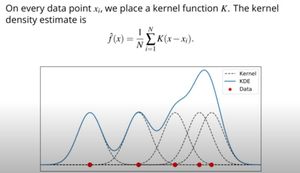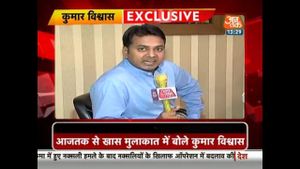The Delhi Assembly Elections 2025 have taken center stage as the results are being tallied, marking what could be one of the most pivotal electoral contests for the national capital.
Counting of votes commenced on February 8, 2025, after elections were held on February 5. This year's election witnessed fierce competition among three major parties: the ruling Aam Aadmi Party (AAP), the Bharatiya Janata Party (BJP), and Congress, promising to shape Delhi's political future dramatically.
Previously, the AAP, led by Arvind Kejriwal, enjoyed unprecedented success after coming to power with 67 of the 70 Assembly seats during the 2015 elections, and followed up with another convincing victory in 2020. Yet, the sentiment at the moment appears to have shifted, with early trends favoring the BJP, likely signaling the end of AAP's stronghold on the capital after almost a decade.
According to initial results, the BJP has surged past the majority mark, leading on 45 of the 70 seats compared to AAP's 25. This dramatic turnaround resonates strongly with recent exit polls, which had suggested possible trouble for the ruling party.
Celebrations erupted at the BJP's headquarters as party workers gathered to mark their party's apparent resurgence, one not seen for over 27 years. BJP leaders attributed the expected win to 'bad governance' under Kejriwal's administration, insisting this sentiment from the constituents has been the catalyst for change.
BJP MP Harsh Malhotra stated, "Arvind Kejriwal's bad governance and corruption have been exposed. The public has made up their mind to change the government. Our credibility, development works, and actions from the central government will help us form the government in Delhi."
Alongside the positive sentiment for the BJP, the defeat of notable AAP leaders has raised eyebrows. Former Deputy Chief Minister Manish Sisodia has lost his seat at Jangpura, serving as one of the high-profile casualties for AAP. His defeat was accompanied by significant losses across several constituencies previously dominated by AAP.
Even Arvind Kejriwal, who was seeking re-election from the New Delhi constituency, found himself trailing BJP's Parvesh Verma by over 1,170 votes as the counting progressed. Kejriwal's loss could represent not only personal failure but also the wider repudiation of AAP's policies.
Political analysts suggest this trend reflects growing dissatisfaction among voters, fueled by claims of corruption and inefficiency from AAP's decade-long governance. Social activist Anna Hazare indicated the seriousness of the situation, stating, "The qualities of purity and selflessness are what voters primarily look for, and this has evidently not been found with Kejriwal and his party."
Commenting on the prospects for Congress, which was trailing behind significantly with only one seat, party leaders expressed their disappointment but acknowledged the mood of the electorate.
Congress candidate Sandeep Dikshit, confronted with his party's low performance, stated, "We raised issues, but the people seem to have made their decision. It looks likely the BJP will form the government, and we accept the people's verdict."
BJP President Virendra Sachdeva made it clear: "If you are dishonest with the public, expect similar results. We believe the Delhi electorate will choose integrity and efficiency as we look toward forming our government here."
Keeping historical voting patterns and recent economic sentiments aside, turnout analysis expert Omar Abdullah noted, "This election isn’t just about who wins; it’s primarily about how the perception of candidates and parties shifts over time, which can be quite transformative immediately."
While the counting continues and results are confirmed, observational trends suggest the electorate is fed up with perceived ineffectiveness from AAP leadership. This could redefine the political narrative moving forward.
The response from party supporters and candidates themselves will be telling. Many AAP members voiced their disbelief amid early results. AAP minister Saurabh Bharadwaj maintained hopeful rhetoric, emphasizing, "Arvind Kejriwal will continue as our chief minister for the fourth time, as he's earned the public's trust through service... the trends will change as counting progresses."
Despite his optimism, many key AAP candidates—once seen as formidable—are now facing down potential defeat, leading to uncertainty within the party’s ranks. Cuts to social programs and infrastructure have been raised as points of contention against AAP’s governance.
On the other hand, supporters of BJP are ecstatic, bridging decades of disparity as they foresee their party’s return to power. Political analysts conclude this shift may be more than just numbers; it could be indicative of broader societal sentiment and changing political realities within Delhi.
With the results continuing to come through, the fate of the AAP remains uncertain as they fight to reclaim lost territory. While the BJP gathers momentum, the political ramifications for those losing status could reshape affiliations and dynamics against the backdrop of Delhi’s storied political history.
Regardless of final outcomes, what is clear is the seriousness with which these results are regarded, exhibiting the high-stakes nature of modern governance and public sentiment.



